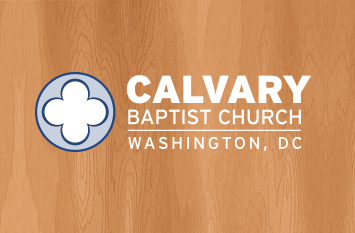
Sunday, February 16, 2014
Sixth Sunday After Epiphany
Matthew 5:21-37
Amy Butler
Sermon Audio
Download Bulletin
_____________________________
For the last five weeks we’ve been talking in worship about the different values of our congregation, what it is we’re doing here these days at Calvary Baptist Church. We try to do some version of that at the beginning of each year, because the lectionary—the three year cycle of passages that a large part of the Christian world reads all together each week—takes us during this time of year through some of the most well-known teachings of Jesus and invites us to follow along with the first disciples as they tried to figure out what it meant to follow Jesus.
We’re trying to figure that out, too, so as we’ve been reading the gospel texts for this season after Epiphany, we are thinking about what it means to be disciples, especially here, in this place. The last few weeks we’ve looked at our values of Perspective, Place, Prophecy, Practice. Today our value is People.
Here we want to be a place where we live and model healthy community, where we actively love each other, where we work to intentionally build and nurture healthy human relationships. Sounds obvious, right? Obvious, maybe. But not easy. Not easy at all.
In a world where we do not often see relationships between people that are life-giving and defined by rigorous, committed love…this, this is a place where we will do that.
Most of you will know about my Bible pull-out check list fantasy. If you don’t, you may have missed the approximately 32 Sundays over the last 10 years on which I’ve opined about such. (Just kidding, it’s not that many. More like, 30 or so.)
Yes, I have this wish—and I’ve always had it, really—that I could open my Bible and find a pull-out checklist. You know, secured to the back cover and accordion-like. This checklist could be pulled out to reveal all of the things we are supposed to do to be good followers of Jesus. And, having said checklist, I could know exactly which rules I need to follow, all the while checking them off, getting them right.
 I fully understand that this need is more related to my personality than my theology, but nonetheless I often wish for this.
I fully understand that this need is more related to my personality than my theology, but nonetheless I often wish for this.
It’s just easier to know up front what the rules are, right?
You might think I’m weird (for this reason or others), but the folks who were listening to Jesus that day on a hillside overlooking Galilee might have been just like me. They knew there was a list of rules, the law, to follow. And they also knew there was this dynamic rabbi, Jesus of Nazareth, who was going to help them understand those rules, once and for all, so they could get it right. They were gathered together that day to hear him tell them how to do it.
It was the first century, Middle Eastern, pull-out check list fantasy. And, it’s no surprise that we find it in the gospel of Matthew, where reverence for the law and tradition is woven throughout the entire book. The writer of Matthew was no slouch when it came to the law. He loves to tell us about Jesus’ take on it.
So here we have Jesus, in the middle of the Sermon on the Mount, teaching the law—some of the 10 Commandments, to be exact. We all know what they say, and the people gathered there did, too.
There are rules, we should follow them, the end. (Please see the accordion pull out in the back of your Bibles, right?)
Here he goes: Don’t murder. Don’t commit adultery. Don’t get divorced. Don’t be dishonest. Check, check, oops!, bummer…there it is right in front of us, in black and white, checklist form. The rules. They are clearly spelled out in the law, and if we’re good, Godly people, we will obey all of them…to the letter, right? Check, check, check.
But here, again, Jesus does what he always, always does, turns things on their heads, makes us think in totally new and radical ways.
Here’s what he was up to.
As most of you lawyers know, law is law. Black and white, words on a page, rules on the books.
Jesus wasn’t there to disparage or undermine the law. But Jesus knew: the spirit of the law is harder to follow than the letter of the law. So he took the crowd’s black and white view of God’s desire for our behavior toward each other (their checklists) and asked them to think even harder about them. And he clued us in to his skewed take by using the narrative tool, “You have heard it said…but I say…,” It may have sounded something like:
- You have heard it said that you shall not murder. But I say, murder is not the real issue, is it? We all know we shouldn’t kill each other, and most of us don’t. But what about anger and hateful words? That’s where it all starts, doesn’t it? How many of you hang onto your anger for dear life, cling to outrage, nurse a grudge? (Or four or five?)
- You have heard it said don’t commit adultery. But I say, we all know it’s best not to cheat on your partner, to sleep around, right? Here’s the less obvious: how often do you look at other people in ways that objectify them or see them as disposable sources for your own pleasure? You don’t have to actually, technically commit adultery to do that; you do it all the time.
- You have heard it said don’t get divorced. But I say, even though the law allows you men to initiate divorce for any reason you please, do you realize what happens to the most vulnerable people—women and children—in our society when you do that? Yes, the law is a good reminder to honor the promises you make when you get married. But, more than that: don’t treat other people like possessions, easy to cast off when you’re tired of them.
- You have heard it said make sure you avoid taking oaths you don’t intend to keep. But I say, instead of worrying about how and when you stand up in front of the world and take a public oath, how about this? How about you deal with each other, always, in a manner that’s open, genuine, vulnerable, transparent, and honest? How about that?
Oh, Jesus. You are always and forever messing things up. How on earth am I going to be able to keep my checklist clearly marked? And why…why do you always say things that hit me right in the hairline cracks of my carefully constructed personal defenses?
I’d never kill someone. But Jesus is saying: you may very well be justified in your anger and outrage toward another, but you know what? Do the hard thing. Go, make peace with your brother or sister, even when it hurts, even when your vulnerability probably will not result in a teary, group singing of Kumbya.
I think we all know it’s a bad idea to commit adultery. But I can think of lots of times when I thoughtlessly objectify people, use them for my own interests without concern for their wellbeing. Jesus says: stop doing that. Stop it.
And divorce? Happens to the most well-intentioned among us. But even if it hasn’t happened to you, there are times when all of us treat people, sometimes those who are already vulnerable, as disposable—afterthoughts. Every person is a beloved creation of God. Every single one. Act like you believe that.
George Washington could not tell a lie, and we all know being dishonest is wrong. Still, (if we’re being honest) there are times in which all of us behave disingenuously in our interactions with others. Hold a higher standard than that, will you?
And that’s, really, what it all boils down to. Jesus is asking us to aspire to something even harder, even higher than the law. He wanted the folks listening to him that day—and us!—to tend and nurture our relationships with each other like they are precious, valuable treasures. He wants us to go beyond the law…to the heart.
And, believe me, that is much, much harder than marking off a checklist. It’s so much harder. It hurts; it’s messy; it doesn’t make much sense; it’s not a popular way to live.
Is it any wonder Jesus made people furious?
It has become a preoccupation of some members of my household lately to prepare for submitting the District of Columbia Learner’s Permit Application. In order to do that successfully, in addition to a bunch of paperwork and fees, one must pass a knowledge test. On that exam, as you might remember when you learned to drive, are questions designed to test one’s knowledge of driving laws. Which is all fine and good and necessary (says this parent).
On the test you will find questions like: When parking your vehicle parallel to the curb on a level street. a. Your front wheels must be turned toward the street. b. Your wheels must be within 18 inches of the curb. c. One of your rear wheels must touch the curb.OR
A white painted curb means: a. Loading zone for freight or passengers. b. Loading zone for passengers or mail only. c. Loading zone for freight only.It’s important to know the answers to these questions (okay, not really sure why on the white painted curb question), so that newly minted drivers can be sure they are following the laws of the District of Columbia, which are, I remind you, put into place to insure the safety of everyone on the road.
But what you won’t find anywhere on the Driver’s Permit test are any questions quizzing new drivers about things like: courtesy, kindness, pardon, generosity, grace…some qualities that, while not codified into law, make driving in the District of Columbia much safer and much more pleasant. Right?
That’s the distinction Jesus was trying to make when he spoke about the law here in Matthew chapter 5.
We’re the church. We’re a representation of God’s hopes for human interaction in the world. And, if you’ve been around the institution of church for any length of time, you’ll also know that we can be one of the harshest, most hurtful places around. Why? Because we love the law. We want the rules. We crave the knowing: who’s in and who’s out. We want to import the way of the world and apply it here.
But Jesus says no.
The law is great; it’s a helpful tool to ordering society. But I want you to go deeper, to try harder, to love more strenuously, to risk yourself for a standard of relationship that so far outshines the law that, if you really live it…you will rock this world.
Even though the people gathered on the hill outside Galilee that day thoughtthat Jesus was the next superstar rabbi of whom they wanted to be fans, Jesus had another agenda. Jesus was talking, not about following the law. He was talking about ushering in the Kingdom of Heaven—this strange, beautiful reality in which we are healed and by which our world is transformed.
And we can’t usher in the kingdom by following the law, or even by using our handy pull out checklist. We just can’t.
We have to do the risky work of love.
Earlier this week, you might have missed, our society celebrated the biggest Hallmark fake-holiday ever. In light of these words of Jesus, I think it’s probably apropos that the saint after which Valentine’s Day is named was killed. That’s because the work of real love is gut wrenchingly difficult; we’d prefer chocolates and stuffed teddy bears. Some words from Glennon Melton:
“REAL love is not pink and fluffy and rose-y and butterflies. Real love is not shiny and whole and smiling serenely. Real love is not holding hands while running through fields of sunflowers or gazing over chardonnay while wearing sexy dresses and opening boxes of diamonds. It’s just not. That stuff is something else.
Real love is tough as nails. Real love is busted up and scuffed and a little jagged and exhausted. Real love is a nightmare at 1 am and a fever at 3 am and everybody else up at 6 and work at 9…. Real love is losing your temper seven times and apologizing eight times. Real love is overwhelmed and exhausted and just DONE at the end of each day. Real love is ADHD and autism and hurt feelings and sucky report cards and cancer and daddy’s gone and listen, babies- this is life-…and there is still much beauty to be found. Let’s find it together.”[1]
The value of people, of healthy community. We live it here. It’s harder, it’s deeper, it’s way more risky to be the church in the way of Jesus than in the way of this world.
But there is so much beauty and healing and hope to be found when we try. Let’s find it together.
Amen.
